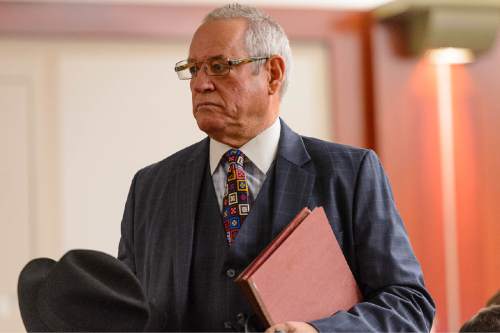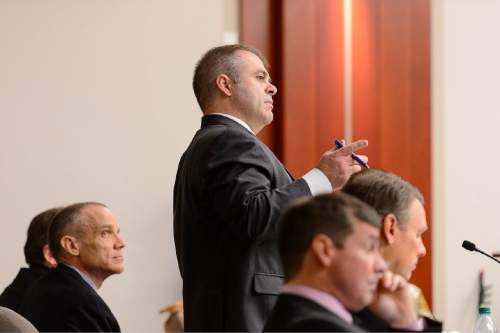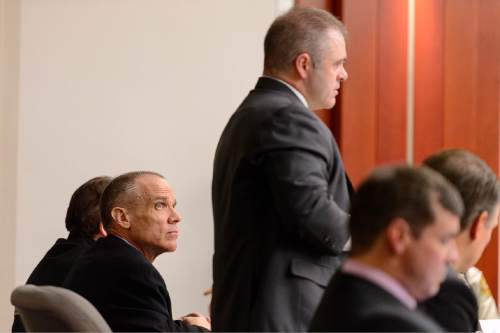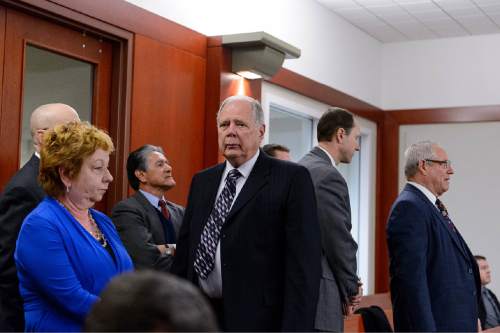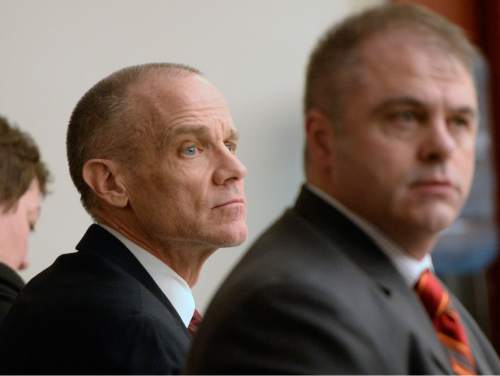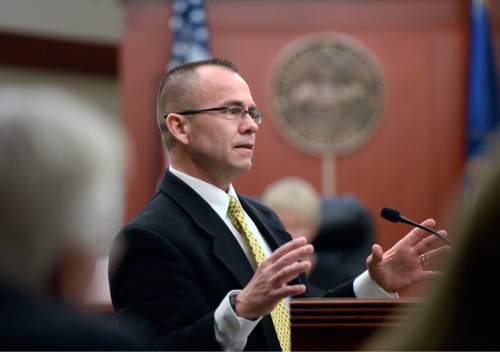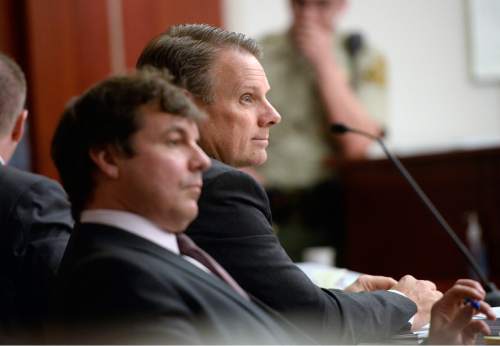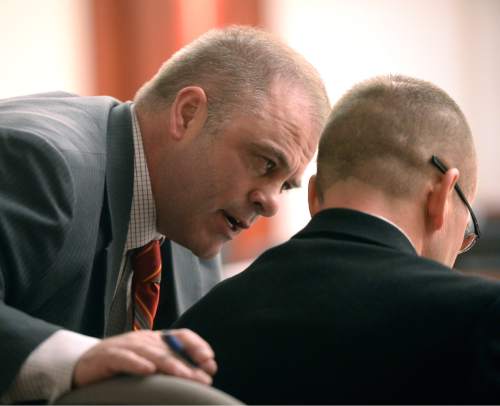This is an archived article that was published on sltrib.com in 2015, and information in the article may be outdated. It is provided only for personal research purposes and may not be reprinted.
Jurors considering the fate of Marc Sessions Jenson — on trial for fraud and money laundering charges — should question the relationship between the alleged victims in the case and former Utah Attorney General Mark Shurtleff, who met with the Colorado investors long before his office filed a criminal case, a defense attorney said Thursday.
Meetings between Shurtleff and the alleged victims in 2009 and 2010 were held at the Utah Capitol, but there is no record of what was discussed, and a state investigator who testified for prosecutors couldn't answer questions under cross-examination about the details, attorney Marcus Mumford said.
"Why won't the state answer these questions?" Mumford asked 3rd District Court jurors during his opening remarks, which he had deferred from giving until the prosecution rested its case.
Mumford contends that the victims changed their stories after meeting with Shurtleff and other members of the attorney general's staff.
In 2009, Mumford said, initial complaints made about the Mount Holly resort were focused on XE Capital, the New York hedge fund contracted to back the development with tens of millions of dollars, to make good on its promises. But by 2010, the focus had shifted to Jenson, Mumford said.
"So first [XE Capital] are the bad guys and now [the victims] are saying this is the bad guy," Mumford said, pointing to Jenson.
The attorney general's office filed criminal charges against Jenson and his brother Stephen Roger Jenson in August 2011, when Shurtleff was at the helm, two years after an investigation into Mount Holly was considered, but dropped.
Stephen Jenson, 49, resolved his case Wednesday by pleading no contest to three third-degree felony counts of communications fraud. If he pays $275,000 in restitution by his March 30 sentencing day, the charges will be reduced to class B misdemeanors and prosecutors will recommend he serve no prison time or probation.
Marc Jenson, 54, has pleaded not guilty to eight felony counts in connection with the failed ski and golf resort near Beaver. He is expected to testify on his own behalf.
The trial is in its sixth day of testimony. If Jenson is found guilty of the second-degree felonies, he faces a prison term of up to 15 years on each count.
The case has ties to the bribery and corruption scandal that left Shurtleff and former Utah Attorney General John Swallow charged with multiple felonies last year. Jenson became a key player in the investigation of Shurtleff and Swallow when he alleged in 2013 that the pair had pressured him for money and favors.
Mumford contends that Jenson's prosecution is political punishment for refusing to comply with the "shakedown."
Mumford also told jurors there is further proof of a conspiracy against Jenson in a Colorado lawsuit settlement that says investor Dr. Jeffrey Donner received "hush money" from Mount Holly associate Tim Bell.
Bell was a longtime friend of Marc Jenson who introduced Donner to the project. The only investor to pay the full $1.5 million membership price, Donner ultimately lost his money and later brought civil lawsuits against Bell and others.
Colorado court papers say a confidential 2010 settlement agreement releases Bell from any "legal action" related to Mount Holly, but also states the "hush money" paid by Bell to Donner was a violation of Colorado law.
Mumford has suggested the money was in return for Donner's silence about Bell's role in recruiting investors.
Under questioning by both Mumford and Utah County Attorney Tim Taylor earlier in the case, Donner said Bell had paid some of his legal fees and that there was no agreement to direct investigators away from Bell, or toward any other specific person, including the Jensons.
Prosecutors contend the Jenson brothers — who sought to transform the defunct Elk Meadows ski area — failed to disclose required information to investors, including that they were near bankruptcy, had been sued over the project and that Marc Jenson had past convictions for securities fraud and tax evasion.
Mumford told jurors the $3.5 billion Mount Holly project was a legitimate enterprise that fell apart after XE Capital cut its funding.
"This was real," he said.
Among Mumford's witnesses for the defense was attorney Eric Pearson, who had represented Mount Holly and drafted the operating agreements it held with financial backers and its membership contracts. Pearson said Mount Holly had had some cash-flow issues but that by November 2007, when Jenson began selling memberships, the projects loans were "in good standing." Pearson also said a plat for the project had been recorded and the project could legally begin sales.
Pearson testified that he had never heard Jenson tell investors that the project was "debt free," a claim each of the victims made in court testimony last week.
"I can say I'm certain of it because it's preposterous enough that I would have been alarmed," Pearson said. "It wasn't something Marc said."


